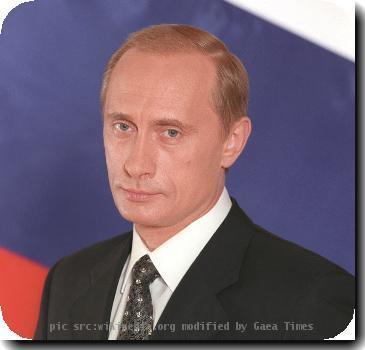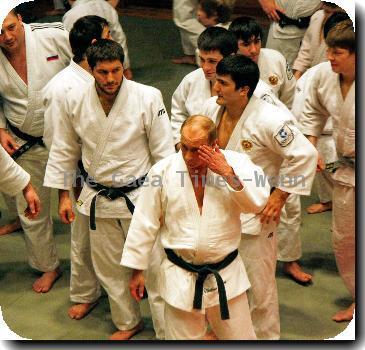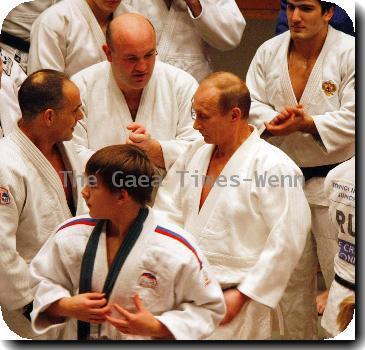Sweltering Russian capital refreshed by rain, but wildfires still burning and smog may return
By APFriday, August 13, 2010
Rain refreshes Moscow, but wildfires still burning
MOSCOW — Heavy downpours cooled the Russian capital after weeks of no rain and unprecedented heat, but dozens of wildfires still raged around Moscow on Friday and a new blaze was spotted near the country’s top nuclear research center.
The city remains largely free of the clouds of suffocating smog that affected it earlier, but meteorologists say smoke from burning forests and peat bogs may choke the city over the weekend if the wind direction changes.
The Emergency Situations Ministry said its teams have managed to reduce the area covered by wildfires, but more than 500 were continuing to burn across the country, including 29 around Moscow. It said about 14,000 firefighters were battling blazes around the Russian capital.
Russia was receiving help from the United States, which on Friday began deliveries of firefighting equipment valued at $2.5 million (€2 million), the U.S. Embassy said. The state of California also has contributed fire-protective clothing.
Several other countries also have contributed to the firefighting effort, including France, Germany, Italy, Poland and Turkey, as well as Belarus, Armenia, Azerbaijan, Kazakhstan and Ukraine. Some have sent firefighting aircraft and personnel.
Russia has been battling the fires for nearly three weeks. A new wildfire started east of the nuclear research facility in Sarov, 300 miles (480 kilometers) east of Moscow. The blaze spread quickly, prompting firefighters in the region to call in reinforcements from neighboring areas, according to the region’s emergency headquarters.
Earlier this month, massive wildfires around Sarov, the birthplace of Soviet nuclear weapons, prompted the state nuclear agency to move all explosive and radioactive material as a precaution. Reinforcements, including aircraft and robots, helped stem the blazes.
Sergei Novikov, a spokesman for the Rosatom state atomic corporation, said that the radioactive and explosive materials were moved back to Sarov after the fire situation had stabilized, and there was no immediate need to move them out again.
“There is no threat now to the state nuclear center,” he told The Associated Press.
Another potential danger comes from wildfires in areas contaminated by the 1986 Chernobyl nuclear disaster, which could raise radioactive particles into the air and spread them over broader territory. The authorities have insisted that all wildfires in the Chernobyl-affected regions have been quickly dealt with and radiation levels have remained normal.
The national weather service on Friday said it had dispatched a team of radiation experts to constantly monitor the radiation level in the western Bryansk region, the area of Russia that suffered most from the Chernobyl catastrophe in Soviet Ukraine.
Emergency Situations Minister Sergei Shoigu took aim at reports of fires in the Bryansk region, which he said had alarmed Europeans.
“I am speaking officially: There is not a single wildfire in the Bryansk region,” Shoigu said during a televised meeting with his subordinates. He said some small fires had broken out but all were extinguished within two hours.
He said firefighters were now focusing their efforts on the regions around Moscow and Ryazan, a city to the southeast. Flooding had begun in both regions of drained peat bogs, where stubborn underground fires are difficult to extinguish.
The heat, unprecedented in 130 years of record-keeping, has contributed to a drought that has cost Russia more than a third of its wheat crop. The government responded by banning wheat exports through the end of the year, sending soaring world grain prices to new highs.
Grain prices in Russia also have been rising despite the export ban. Officials in Moscow have registered a 10 percent hike in retail prices for bread in late July and early August.
Prime Minister Vladimir Putin met Friday with the head of the anti-monopoly agency, Igor Artemyev, and urged him to quickly punish those who try to drive prices up.
“They better act in accordance with the law or they will face fines that would far exceed the profits they would win from speculation,” Putin said.
Artemyev said that companies that engage in “unjustified” price hikes could face fines of up to 15 percent of their total annual sales volume.
Tags: Air Quality, Eastern Europe, Environmental Concerns, Europe, Fires, International Trade, Moscow, Prices, Russia, Vladimir Putin


